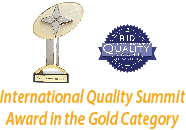
DOCUMENTS | Medicine Documents
Organic Foods: Top Picks
1) To Buy or Not to Buy Organic
Is organic food worth the extra cost? Some items might be a higher priority than others. Experts recommend spending most of your organic food dollars on produce and the foods you eat most often.
2) Buy Organic: Peaches
The Environmental Working Group, a nonprofit organization in Washington, DC, recommends going organic on produce that is most susceptible to pesticide residue, like peaches.
3) Buy Organic: Apples
Apples are a good source of fiber, especially if you eat the peel. The peel also has nutrients that may cut your odds of getting cancer and heart disease. But the peel is also where pesticides can build up. So buying organic apples makes sense. If you can't afford it, scrubbing their skins under running water can help reduce pesticide residues, too.
4) Buy Organic: Sweet Bell Peppers
Bell peppers are among those vegetables with higher pesticide residues. But government limits set safe levels of pesticide use and residue allowed on foods, organic or not. Although some pesticide levels are assumed to be safe, the chemicals used are strong. Because kids' immune systems may not be fully developed, they may be at greater risk from some pesticides than adults.
5) Buy Organic: Celery
A crunchy, low-calorie vegetable with a bit of vitamins A, C, and K, folate, potassium, and manganese, one large stalk of celery has only about 10 calories. Whether or not you buy organic celery, you can reduce pesticide residues, dirt, and bacteria by thoroughly washing the stalks under streaming water. Do not use soap.
6) Buy Organic: Nectarines
This juicy fruit is rich in vitamins A and C, niacin, and potassium. An average-sized nectarine has about 65 calories. Scrub or remove the peel to help reduce pesticide residues.
7) Buy Organic: Strawberries & Cherries
Strawberries and cherries are a great source of vitamin C. And while buying organic berries may give you a lot of bang for your organic buck, you may also want to consider buying local. Locally grown foods are usually fresher, and kinder to the environment, than produce that's traveled a long way to your store.
8) Buy Organic: Pears
A medium-sized pear contains about 103 calories and is a good source of vitamin C and fiber. But pears often have higher pesticide residues than many other fruits. It's a good idea to scrub a pear's skin to reduce pesticide residue and bacteria, even in organic pears.
9) Buy Organic: Grapes
Grapes are a tasty low-calorie snack or dessert. One cup has about 104 calories and is packed with vitamins C and K. Raisins (dried grapes) are also a good source of iron. Try to avoid imported grapes, which often have higher pesticide residues. But don't eliminate grapes from your diet if you can't always buy organic. Consider buying organic grapes for children and if you're pregnant.
10) Buy Organic: Spinach & Lettuce
Spinach is a great source of protein, vitamins A, C, E, and K, thiamine, riboflavin, vitamin B6, folate, calcium, iron, magnesium, phosphorus, potassium, copper, and manganese. It's got about 7 calories a cup. Lettuce has about 5 calories per cup. But they also have high levels of pesticide residue. Buy organic or grow your own (greens do well even in large patio containers).
11) Buy Organic: Potatoes & Carrots
Potatoes are a good organic purchase, especially since most conventional potatoes are pesticide-intensive crops. They are a good source of vitamin C, vitamin B6, potassium, manganese, and fiber. A medium-sized baked potato contains around 161 calories, without the fixings. Sweet, crunchy carrots are loaded with vitamins A and K and are a good source of fiber.
12) Buy Organic: Beef
According to the Organic Trade Association, livestock on an organic farm cannot be given antibiotics or growth hormones unnecessarily. And although the risk to humans isn't clear, added hormones do show up in supermarket beef.
13) Buy Organic: Milk
Cows raised on conventional farms are often given recombinant bovine growth hormone (rBGH) to boost the amount of milk they produce. Does rBGH pose a health hazard to humans? Scientists don't agree. But if you have a baby or child who drinks milk, consider taking precaution and choosing rBGH-free or organic. Organic milk comes from cows that have not been given antibiotics or hormones. Many conventional brands are rBGH-free but aren't labeled as such. Look it up online or call the milk company.
14) Buy Organic: Peanut Butter
Kids tend to eat a lot of peanut butter, and peanut butter made from just organic peanuts and salt is better than conventional peanut butter with added hydrogenated oils and sugar. The natural oils in organic peanut butter may separate and form a layer on top of the jar. If so, just stir it all up so it's creamy again.
15) Buy Organic: Baby Foods
Because kids' immune systems are not fully developed, they may be at greater risk from some pesticides than adults. Feeding them organic baby food provides peace of mind and ensures you give your baby the best start.
16) Look for the USDA Organic Seal
The organic seal means the food is grown, harvested, and processed according to government standards that include limits on amounts and residues of pesticides, hormones, and antibiotics. Natural pesticides are allowed. Organic foods cannot be treated with any sewage sludge, bioengineering, or ionizing radiation.
17) Understand Organic Terms
When buying organic products, look for the following terms on food labels:
• "100% organic" -- All ingredients must be certified organic.
• "Organic" -- This means the food has at least 95% certified organic ingredients.
• "Made with organic ingredients" -- This means the food must contain at least 70% certified organic ingredients.
From WebMD
Link http://www.webmd.com/food-recipes/ss/slideshow-to-buy-or-not-to-buy-organic


